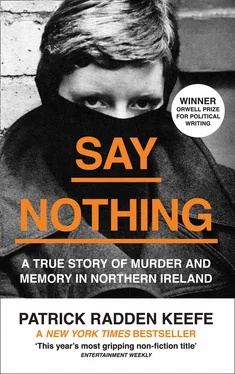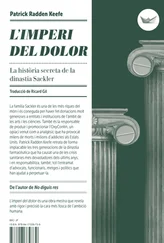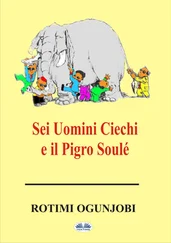McKee was wearing the shoulder holster when the Provos tracked him down. Under interrogation, he confessed to his betrayal, just as Seamus Wright had. But now the Provos found themselves in an interesting position. On the one hand, they had identified two defectors, who had betrayed the organisation by agreeing to work with the British. Normally, they would have been court-martialled, found guilty, shot in the back of the head, then dumped by the side of the road. But the British did not appear to know that Hughes had discovered this breach in the IRA’s security – and Wright and McKee would do anything, now, to save their own lives. If their confessions were to be believed, the British Army had orchestrated an elaborate spy operation targeting the Provos, yet the precise dimensions and operational details of that effort remained unclear. So Hughes was presented with an opportunity: rather than execute Wright and McKee, he could use them to gather intelligence on the British, as triple agents.
For Wright and McKee, such a move might be risky, but it was preferable to the alternative of a speedy execution. Wright actually went back to work for the Freds, with instructions, this time, to provide his British handlers with only low-level information or, better still, misinformation. Asked to identify a Provo on a street corner, Wright could tell the British he was a Sticky instead. This was a dangerous game. If the army discovered the deception, Wright could be sent to jail. He could also be shot by the MRF, which had shown little compunction about the occasional extrajudicial killing. But by demanding that Wright and McKee supply him with intelligence, Hughes was offering each man an opportunity to earn his life back: if they could deliver for the IRA, Hughes promised them, they would be granted ‘immunity’ for their initial crime.
The men delivered. What they described to Hughes was an extensive intelligence-gathering network that the British had developed around Belfast. The centrepiece of the operation was a laundry service, with an office in the city centre. Four Square Laundry operated an actual door-to-door laundry service, picking up clothing and linens and then subcontracting to an industrial laundry in Belfast to wash the clothes. But before they got there, the clothes were analysed by British authorities. Traces of explosives could be detected on garments in order to determine whether bombs were being made or stored at a property. Analysts could also compare the clothing being picked up at a given residence with the number, age and gender of the people ostensibly living there; a mismatch might indicate that it was an arms drop or a call house. The laundry van had been specially configured with a hollow roof, in which a soldier could conceal himself, snapping photos of people and houses outside through a hidden opening.
As soon as Hughes learned about the laundry operation, he wanted to sweep in and upend it. But Gerry Adams cautioned him to hold off. ‘Sit back,’ Adams said. ‘Do more intelligence.’ Hughes and his men learned that, in addition to the laundry service and the office in the city centre, the MRF was operating a massage parlour above a house on the Antrim Road, where customers would sometimes find themselves so blissfully relaxed that they casually disclosed things to the chatty masseuse. By early October, Hughes and his team decided that they had gathered enough intelligence. It was time to move. They couldn’t hit these locations one by one: as soon as they attacked the first one, the MRF would know that the whole operation was blown. So the Provos would launch three near-simultaneous strikes – on the van, the office and the massage parlour. The objective was to wipe out the whole intelligence-gathering apparatus in the space of a single hour.
The man behind the wheel of the Four Square Laundry van, Ted Stuart, was an undercover British sapper with the Royal Engineers. Ever since childhood, he had wanted to be a soldier. He was twenty and had been serving in Northern Ireland only since June. As the Provo hit team fired on the van, he died almost instantly.
When the gunmen turned on Stuart’s partner, Sarah Jane Warke, she plunged into the house of the local woman she had been talking to. Warke was also an undercover soldier, a member of the Women’s Royal Army Corps. She pulled the woman and her children in with her and – thinking quickly – told them that this must be a loyalist ambush. The woman helped Warke scuttle out of the back door and escape.
The gunmen had orders not just to kill the young pair who operated the laundry service, but to strafe the ceiling of the van with bullets, in order to kill the soldier inside. In their haste, or panic, however, they did not do so, and if there was a third soldier concealed in the van, he escaped alive. Elsewhere in Belfast, another team of gunmen shot up the massage parlour, and a third shot up the office, though neither managed to hit any other members of the MRF.
The Four Square Laundry operation marked a major victory for the Provos. Hughes was proud of how it had played out, and in a memoir, decades later, Gerry Adams would call it ‘a devastating blow’ to the British. The question now was what to do with Wright and McKee?
On the day of the Four Square operation, Wright came home and told his wife, Kathleen, that he would have to be careful, because before his release by the British, he had signed some papers relating to the Official Secrets Act. Then, that night, he disappeared. A car drove up to his family’s door on Bombay Street. Wright exchanged a few words with the driver, got into the passenger seat, and was driven off. When he did not return, Kathleen went to Leeson Street to ask the Provos what had become of him. They told her that he had not been taken by the IRA. After hearing that, Kathleen became convinced that her husband might have been snatched by the army. But the army, too, denied any involvement in his abduction. Military sources suggested to the press that Wright could have run off on his own and might be hiding out in Scotland.
At around the same time, McKee vanished as well. One of his aunts had told him, ‘The IRA’s been looking for you.’
‘I’ve done nothing wrong,’ McKee replied, confident as ever.
When he disappeared, the family chose not to contact the police. The authorities would probably be more harm than help. But there were rumours: that McKee had gone off to art school; that someone had spotted him in England.
The truth was that both men had been taken by the IRA. They had played their final card by giving the information on the MRF and the Four Square Laundry. The moment the simultaneous raids were complete, Wright and McKee no longer possessed any leverage. Brendan Hughes may have assured them that they had immunity, but this was not really an assurance he was authorised to give. By initially betraying the Provos, they had committed an unforgivable sin – one that was not diminished by their subsequent work as triple agents. The Unknowns were summoned, and Dolours Price drove both men across the border to the Republic.
It was just Price driving the two of them. She had a particular loathing for informers. She had been brought up to revile them. But if she felt contempt for Wright and McKee, she kept it hidden, and on the drive south they were relaxed. After the success of the Four Square Laundry operation, they believed that they had earned their lives back. Someone had told Wright and McKee that they were going for a week of R&R across the border. ‘You’re just going to get a rest and get your strength back,’ Price assured them. As far as she knew, it was true, though she had her suspicions to the contrary. In any case, she had her orders. In Monaghan, she dropped them off with the local unit.
McKee ended up in a house in County Monaghan, which belonged to the family of a dead IRA man, Fergal O’Hanlon, who had been killed in the 1950s and had become the subject of a famous ballad, ‘The Patriot Game’. He was obliged to wait for a period of time so that some senior leaders could come across the border for his court-martial. The people who were minding him grew fond of him; he was a good cook, a fun guy, a personality. At one point, McKee telephoned his mother, from the home of a nearby priest, and asked her to bring him a change of clothes. She and his aunts drove down, but when they arrived at the house, Kevin was gone. A man was there. ‘Take the clothes with you,’ he said. ‘He’ll not be back.’
Читать дальше












![Helen Rowland - The Widow [To Say Nothing of the Man]](/books/752764/helen-rowland-the-widow-to-say-nothing-of-the-man-thumb.webp)